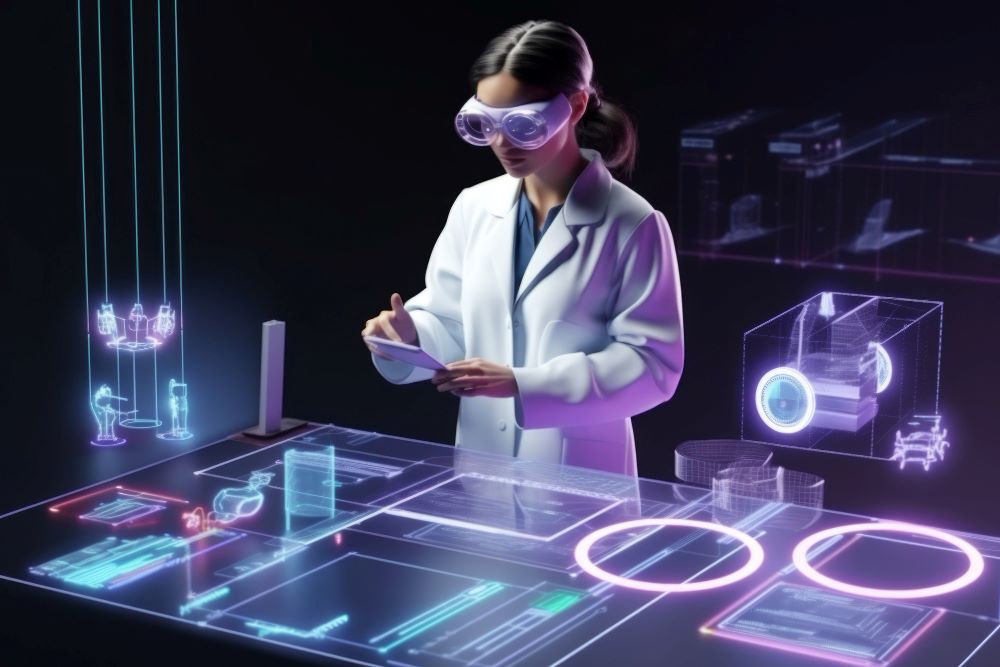Top 9 Benefits of Technology in Healthcare
Technology is transforming healthcare, helping both professionals and people with everything from diagnosis to sickness management.
While electronic recording streamlines processes, modern diagnostic tools detect diseases early. Artificial intelligence and other cutting-edge technologies speed up medication discovery and help with imaging analysis.
Every aspect of healthcare is impacted by technology, which calls for constant innovation and management of various tech stacks.
Governmental and business organizations encourage the use of technology because they understand its importance. Providers embracing digital transformation improve patient outcomes, save costs, and increase capabilities—all despite worker shortages.
There are substantial cross-sector benefits when healthcare providers increase their use of technology. Learn about the main benefits of medical technology and how to use innovation to enhance patient care.
“Technology can transform the patient-doctor relationship, making it more personalized and efficient.”
– Dr. John Halamka
How is technology beneficial to our health?
Convenience has become associated with technology, and the healthcare industry is no different. People may now access real-time health data and take proactive steps to improve their well-being thanks to the development of wearable technology and health-tracking applications.
These technologies enable users to make informed lifestyle choices and prevent potential health issues before they develop. Examples of these technologies include heart rate and sleep pattern tracking and daily step monitoring.
Furthermore, telemedicine has become a game-changer, particularly in disadvantaged or rural places. Patients can communicate with healthcare practitioners virtually through video consultations and remote monitoring, which lowers access barriers and increases the effectiveness of healthcare delivery.
How has technology improved healthcare?
The days of tedious medical records kept on paper are long gone. The use of electronic health records (EHRs) has simplified administrative duties and made it possible for medical staff to safely and effectively access patient data. In addition to saving time, this digitalization lowers the possibility of mistakes that come with manual recording, guaranteeing precise and thorough patient data management.
In addition, illness diagnosis and therapy planning have been transformed by sophisticated diagnostic technology. These advancements, which range from genetic testing to high-resolution imaging techniques, allow for early disease detection and individualized treatment plans catered to the requirements of each patient.
Artificial intelligence systems, for example, can evaluate medical pictures with an astonishing level of precision, which helps radiologists find problems and speed up diagnostic times.
Benefits of technology in healthcare
1# Improved Patient Education
In the current healthcare environment, patient education applications are indispensable resources that offer personalized and updated information to help people comprehend their medical issues and recommended courses of action.
With the help of these applications, patients may access interactive modules, thorough information, and tailored advice on a flexible platform that promotes learning and deeper involvement.
Through the provision of tailored knowledge and insights, these applications support proactive health management in addition to improving treatment adherence.
Patients are given the ability to actively participate in their healthcare journeys through user-friendly interfaces and configurable features, which enhance patient-provider interactions and improve health outcomes.
2# Decreased Costs
Telehealth and other medical technology are essential for reducing costs throughout the whole healthcare system. Healthcare providers may drastically reduce office-related costs, such as overhead and operating expenditures, by using telehealth technologies.
Telehealth enhances resource usage by streamlining workflows and increasing efficiency, which minimizes wasteful spending and maximizes revenue. Additionally, automatic appointment reminders reduce the number of missed appointments and the financial loss brought on by no-shows.
This dual advantage of cost-cutting applies to patients as well, who may see a decrease in total healthcare expenditures as well as a reduction in out-of-pocket charges for healthcare facilities.
3# IoT Wearable Devices
Wearable IoT (Internet of Things) technology is revolutionizing the healthcare industry by enabling remote and ongoing vital sign monitoring. These gadgets give patients real-time data on parameters like heart rate, blood pressure, and activity levels while blending in seamlessly with their daily routines.
By enabling patients and healthcare professionals to identify and address any health risks early on, this proactive approach improves the quality of care overall and facilitates the more effective management of chronic conditions.
Additionally, electronic monitoring tools and implanted devices provide extra levels of assistance by guaranteeing accurate and timely tracking of critical measures, which improves treatment results and patient well-being.
4# Improved Access to Patient Medical Records
Artificial intelligence, wearable technology, and digital treatment are examples of technological innovations that have completely changed healthcare by enhancing patient medical record access.
Healthcare professionals may now easily coordinate patient care thanks to these improvements, which also guarantee that authorized practitioners have easy access to all relevant information. The organized and easily available nature of electronic health records (EHR) facilitates effective data exchange and cooperation among medical providers.
More precise diagnoses, individualized treatment plans, and better decision-making are made possible by the increased accessibility to complete patient information. In the end, it results in better patient outcomes, higher-quality care, and a more seamless healthcare encounter for both patients and healthcare professionals.
5# Enhanced Research and Development
Technology-driven improved R&D in healthcare is a driving force behind ground-breaking improvements in patient care and treatment results.
Advanced technologies like data analytics, artificial intelligence, and precision medicine enable researchers to better understand illnesses, find new therapeutic targets, and create ground-breaking therapies.
This increased rate of innovation promotes the improvement of currently available treatment methods in addition to the development of new medications and medical equipment.
Patients get real advantages from these developments, having access to more efficient and customized healthcare options that raise their standard of living and lead to better overall health results.
6# Streamlined Workflows
Healthcare institutions that use new technologies benefit from improved workflows that greatly improve decision-making. This change allows doctors to see more patients in their daily schedules and reduces administrative workloads at the same time.
Clinics may provide patients with easier scheduling and booking alternatives by integrating telehealth technologies, hence enabling virtual appointments. This guarantees that patients may obtain prompt medical treatment regardless of their location or mobility limitations in addition to extending the reach of healthcare services.
Technology-enabled clinic optimization improves patient happiness and healthcare outcomes by enabling healthcare practitioners to provide more accessible and efficient services.
7# Data-driven Insights
The application of modern data analytics in healthcare can offer a breakthrough advantage by mining enormous datasets for invaluable insights.
Healthcare professionals can implement customized therapies for a variety of patient groups by assessing patient populations to identify risk profiles, socioeconomic characteristics, and demographic trends.
Healthcare systems may more effectively allocate resources, predict epidemics, and put preventative measures into place by monitoring illness patterns. Assessing the effectiveness of therapy also helps with evidence-based decision-making, which guarantees that patients receive the best therapies.
By improving patient outcomes, cutting costs, and developing population health management plans for a more viable and efficient healthcare ecosystem, these data-driven insights promote a proactive approach to healthcare delivery.
8# Fewer Human-related Medical Errors and Better Health Outcomes
The combination of artificial intelligence (AI) with electronic health records (EHR) technology is a powerful defense against medical mistakes caused by human error, bringing in a new age of better patient outcomes.
EHR systems provide accuracy and completeness by digitizing patient data, reducing the possibility of frequent data entry mistakes present in paper-based records. Healthcare practitioners may now make better judgments thanks to AI-driven diagnostic technologies that improve illness detection by evaluating large datasets with unmatched speed and precision.
The reduction of medical mistakes via the use of technology in healthcare can result in safer procedures, more efficient treatments, and ultimately improved health outcomes for people all over the world.
9# Telehealth and Telemedicine
Telehealth and telemedicine revolutionize healthcare, eliminating geographical boundaries and empowering patients with medical knowledge, enabling continuous health tracking.
Consultations and follow-ups become smooth, giving patients easy access to medical specialists from the comfort of their homes. As mental health counseling becomes more widely available, stigmas are dispelled and treatment compliance rises.
Additionally, online learning improves the abilities and knowledge of healthcare professionals, enabling them to make better decisions and offer better care for patients.
When taken as a whole, these developments democratize healthcare and promote a more accessible and effective system for all.
Conclusion
Patients and healthcare professionals alike have benefited greatly from the revolutionary developments brought about by the incorporation of technology in healthcare. Technology impacts healthcare delivery by reducing costs, enhancing patient education, streamlining procedures, and improving access to medical data.
Intelligent wearables, telemedicine, and artificial intelligence have transformed patient care by enabling proactive condition management and enabling remote consultations.
Persistent innovation and digital integration position the healthcare sector to sustain progress, enhance efficacy, and foster inclusivity.




